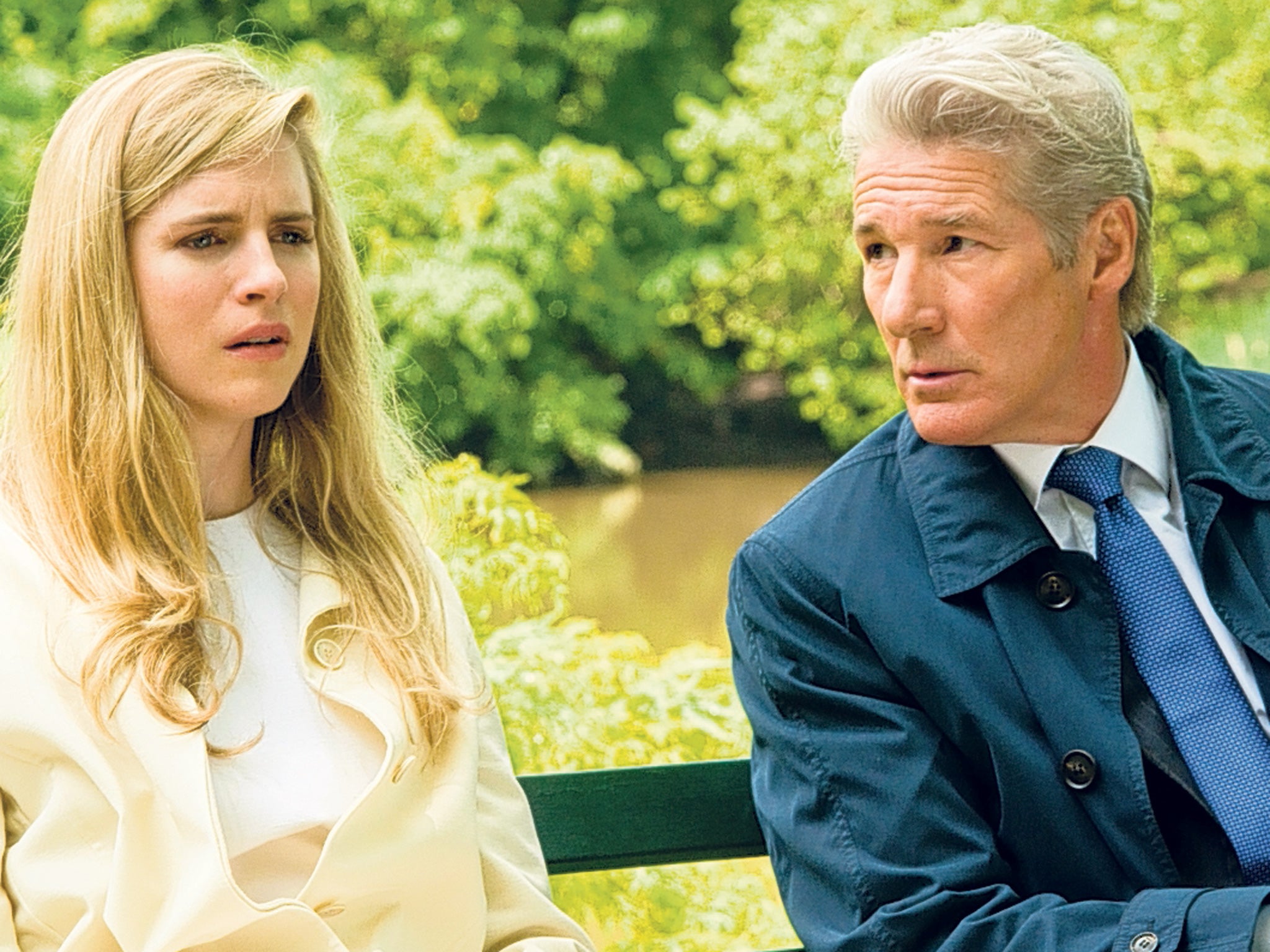Richard Gere and the morality of power
Nominated for a Golden Globe for his performance, the 63-year-old actor plays a billionaire broker in his new film Arbitrage. It was easy to sympathise with him, he explains

It's just after 1pm, but Richard Gere isn't stopping for lunch. The actor and activist is in full flow, taking about his latest film, Arbitrage. Playing a morally conflicted hedge-fund manager, it's arguably his best performance in years, winning him a recent Golden Globe nomination. On another year, he would've been up for an Oscar too (remarkably, in a career spanning almost 40 years, he's never been nominated). But he won't allow such talk. "I never think that way," he says, blinking behind a pair of wire-rimmed glasses. "If it's about me, then it's not going to work. Honestly. It just won't work. I have to be invisible."
That's not exactly easy for the 63- year-old, who – in 1999 when he turned 50 – was voted People magazine's Sexiest Man Alive, a belated nod towards his string of career-defining roles across the Eighties and early-Nineties, in films like An Officer and a Gentleman, American Gigolo and Pretty Woman. This is the man who was wed to supermodel Cindy Crawford, and – for the past 10 years – has been married to ex-Bond girl, Carey Lowell (with whom he has a 12-year-old son, Homer). Even now, with a series of PR women fluttering around him, it's not hard to see that the silver-haired Gere still causes hearts to skip.
Arbitrage does not play on his sex symbol status; far from it. Gere's Robert Miller is a billionaire on the verge of imploding after a fatal car accident he causes threatens to derail the multimillion-dollar sale of his company. It's a story about "the morality of power", how the haves will always flex their political and legal muscle to survive, though, curiously, Gere sees Miller as one of us. "He's perfect in all ways. He's got a lot of money – everything you aspire to but everything you hate at the same time. But I think in reality he's today's Everyman. He has all the problems of present day human beings; this incredible drive for success, and a fairly narrow definition of what that is, and what happiness is."
Gere, who was raised on a farm in Syracuse, in upstate New York, the son of an insurance agent and a homemaker, is well aware characters like Miller are "the punching bags" of our time. Somehow, despite his privilege and survive-at-all-costs mentality, the actor manages to make him a compelling figure to watch. We somehow want him to triumph. "This character is not reptilian," he argues. "The conscious choice here was to make this guy [like] us, that he is a mirror, and – despite our prejudice against him – that we would find ourselves in him."
It is, of course, not always easy to swallow a wealthy Hollywood star's protestations that we should relate to a billionaire. Even more so when it comes from a practising Buddhist who has had his own moments of excess – spending nearly £20,000 in 1994 on an advert in The Times, claiming his marriage to Crawford was not, as reports had it, on the rocks. But Gere is no longer quite the in-demand star he was, commanding high salaries for films like First Knight and Runaway Bride as he once did. Even he's felt the pinch in today's Hollywood.
Perhaps he was spoilt, arriving in an era when films like Terrence Malick's Days of Heaven – which established his screen career after a protracted period in the theatre in the early Seventies – were the norm. "We were all a bit, I hate to say greedy, but we got greedy," he confesses. "I was making films where I was paid very well, difficult films, studios wanted to make them, the audiences wanted to see them, and it has changed radically. We're all trying to figure out how we fit into this new world – if you want to make these kinds of movies. And no one has figured it out."
Despite the heat around his performance, Gere hasn't capitalised with a follow-up film – partly because "the Tibetan thing", as he puts it, is taking up more of his time. "I've doubled down on my energy around that because it's so desperate right now." For years, he's been the Hollywood envoy for the Tibetan leader, the Dalai Lama, after forging a relationship with him in the early 1980s. Discovering Buddhism in 1978, after taking a trip to Nepal with Brazilian painter Sylvia Martins, he went on to become one of the founders of Tibet House, a non-profit organisation that works to preserve Tibetan culture.
Never mind those alpha males he so neatly essays; this may yet prove to be the most memorable role in his career.
'Arbitrage' is on general release
Join our commenting forum
Join thought-provoking conversations, follow other Independent readers and see their replies
Comments
Bookmark popover
Removed from bookmarks